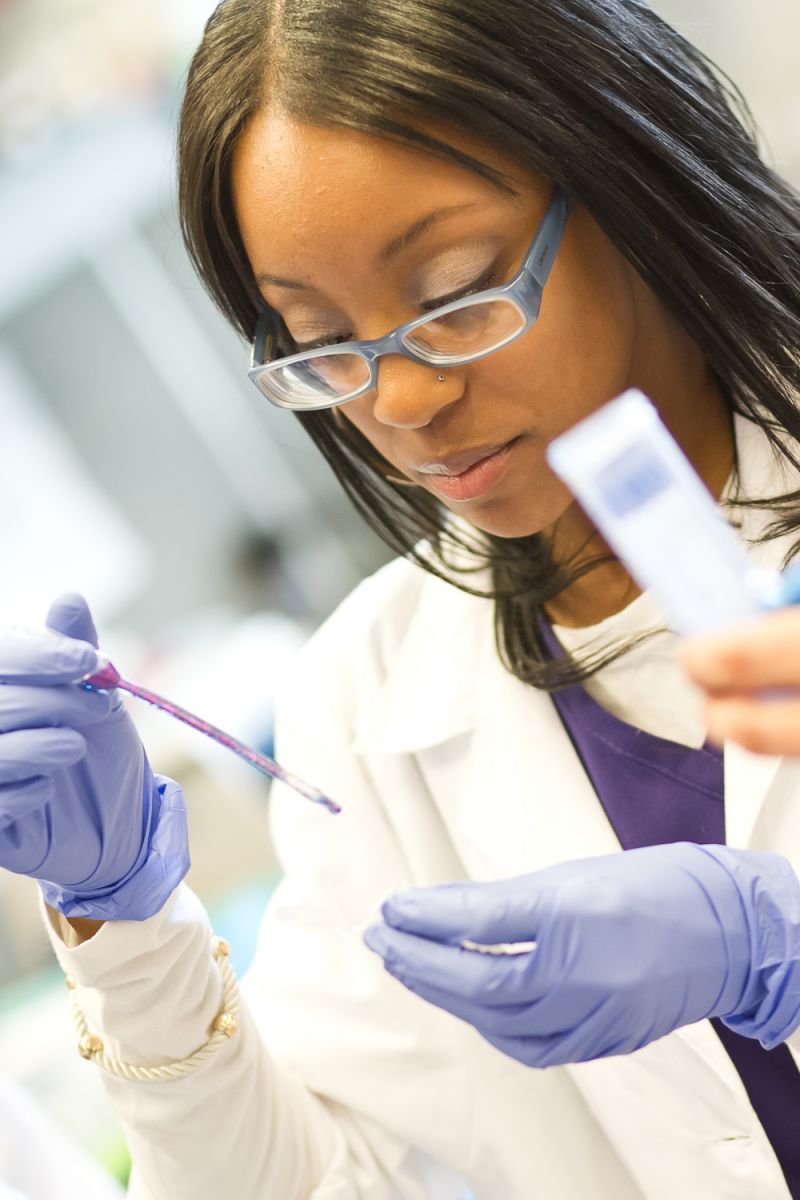
Thank you for your interest in the Woodruff Lab Summer Internships. Unfortunately, we are not accepting applications for Summer 2018.
The Women's Health Research Institute offers several summer laboratory internships to senior and junior high school students and undergraduate students interested in gaining experience in oncofertility. The Woodruff Lab, housed on Northwestern University's Chicago campus provides areas of study in the following disciplines:
Ovarian determinants
The primary goals of the laboratory are to understand the development of the ovarian follicle, identify markers and determinants of egg quality, and discover how this basic biology can be applied to patients. This research includes the biological, cellular, and molecular mechanisms that regulate the development of the ovarian follicle, such as the study of endocrine, structural, and other environmental cues in the ovary, and an understanding of cell death within the follicle and supporting cells.
In vitro follicle growth of primary follicles
The group is interested in understanding the cues that small follicles require to grow and develop. They have developed four different methods that support the in vitro development of primary follicles, which have begun to shed crucial insights into how the process of follicle development occurs in the context of the ovary. These methods include: (1) co-culture with theca-interstitial cells and macrophages, (2) co-culture with mouse embryonic fibroblasts, (3) culture in a defined stem-cell based, and (4) cohort culture with multiple follicles grown together.
Environment
Ovarian follicles grow many times their original diameter from the prenatal to terminal sizes (~37-fold volume increase in mouse and ~2.4 x 106 –fold volume increase in human). In collaboration with Lonnie Shea’s team, the lab has identified that a three-dimensional encapsulated culture system supports the formation and development of ovarian follicles in vitro. Using alginate hydrogels, they successfully supported the growth of mouse follicles and are now developing next-generation three-dimensional matrices, which can provide support and simultaneously decrease rigidity as a follicle expands.
Cell Death
Chemotherapies and radiation cause unintended apoptosis of ovarian primordial follicles. Recent work from the lab and others suggests that the p53 family of proteins is involved in this cell death response. The team is investigating the mechanisms that mitigate this off-target effect on primordial oocytes. They are currently blocking the action of p53 family proteins in conjunction with in vitro applications of existing chemotherapeutics. The findings have identified that this co-treatment can prevent ovarian follicle apoptosis but not DNA cell-damage. The lab is currently examining the health of the remaining oocytes and identifying whether endogenous mechanisms can repair the damage of surviving follicles.
